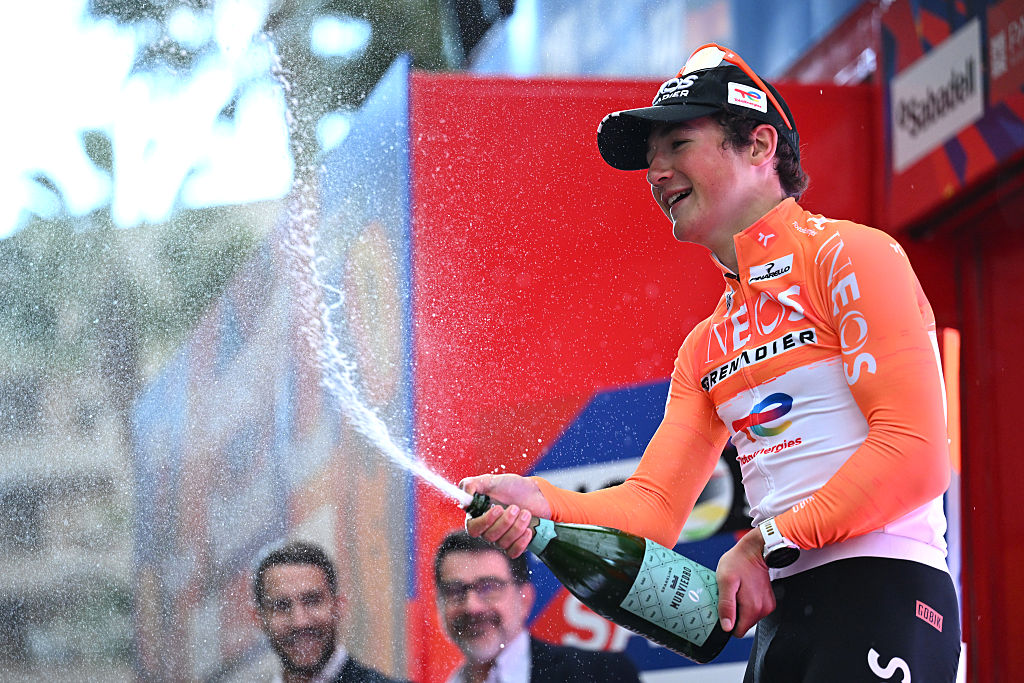Manzano delivers shocking evidence at Puerto trial
Ex-Kelme rider claims he was obliged to dope and collapsed twice as a result of treatments he underwent
The latest race content, interviews, features, reviews and expert buying guides, direct to your inbox!
You are now subscribed
Your newsletter sign-up was successful
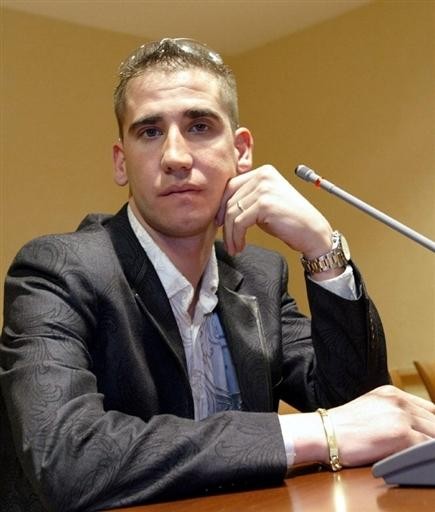
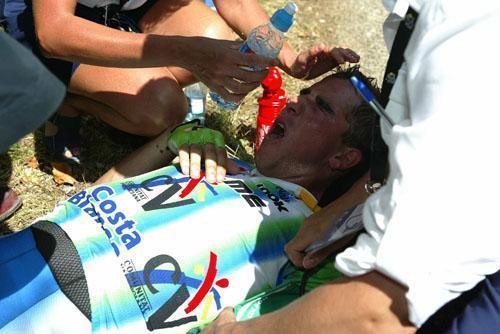
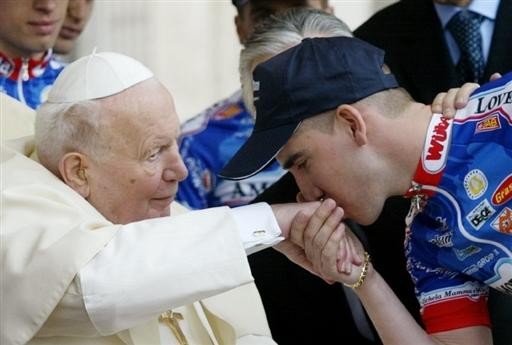
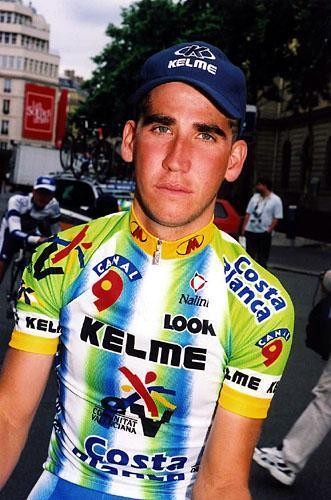
During more than three hours on the stand at the Puerto trial in Madrid on Wednesday, Jesús Manzano provided detailed and sometimes shocking testimony about blood transfusions and doping practices he underwent during his four seasons on the Kelme team. Manzano claimed that the team forced him to take banned products and threatened him with dismissal if he refused to do so, explained the damage done to his health by doping practices, and alleged that doping products were bought by Kelme’s management out of the team’s budget.
Manzano’s evidence looked particularly damning for four of the defendants on trial for crimes against public health. The ex-Kelme rider said he had never had any link or relationship at all with former ONCE and Liberty Seguros team manager Manolo Saiz, but he made numerous allegations relating to Saiz’s fellow defendants, Dr Eufemiano Fuentes, Dr Yolanda Fuentes, Vicente Belda and José Ignacio Labarta.
Manzano dropped an early bombshell when he produced his UCI health card from 2003. This, he said, showed that he had a working relationship with Eufemiano Fuentes, who had previously testified he had no relationship with Manzano. The card bore Fuentes’s signature, indicating he was the rider’s doctor. Although the doctor’s lawyer attempted to have the card struck out as evidence, the judge overruled this protest and Fuentes confirmed the signature was indeed his.
Manzano went on to say that he had been given EPO by Fuentes in 2000, 2001 and 2003. “There were two types of treatment – taking it intravenously or subcutaneously,” he explained. “During races, Eufemiano, Yolanda, [Kelme doctor] Walter Virú or [Kelme doctor] Alfredo Córdova would give us EPO. When we were at home we would do it ourselves.”
Manzano said that Belda oversaw the planning and coordinated these treatments. “The team used to plan out how we would pass the controls, so that those of us who had a high haematocrit would present ourselves [to the UCI’s testers] the latest… When the UCI were carrying out tests we would take serum or human albumin and get our haematocrit down that way,” Manzano explained. He went on to say that the only rider on the Kelme team who didn’t dope was José Miguel Cuenca.
Manzano declared he had been given a variety of different products, naming Actovegin, testosterone, cortisone, nandrolone, Oxyglobin, haemoglobin and female hormone that was prescribed by Eufemiano Fuentes in the name of Yolanda Fuentes, but given to the Kelme rider.
Asked about the administration of Actovegin, which is extracted from calves’ blood and is used to enhance aerobic oxidation in mammals, and Oxyglobin, which is used to treat anaemia in dogs, Manzano said that the riders “used to joke about it. Some days we would go out barking and others we would go out mooing.” He also explained that an infusion of 50ml of Oxyglobin had led to his collapse on the Morzine stage of the 2003 Tour de France.
The latest race content, interviews, features, reviews and expert buying guides, direct to your inbox!
“The collapse at the Tour wasn’t the result of heatstroke because it came nearer to the start than the end of the stage,” said Manzano. “I felt cold, nauseous and fell to the ground semi-conscious. When I came around I was in an ambulance… When I was in the hospital in France we told them not to do any blood tests because if they had we could have gone to prison.”
Having abandoned the Tour, Manzano said he was sent by the team to Valencia to undergo a transfusion in preparation for the upcoming Vuelta. “Belda sent me there and Virú carried it out. I began to feel unwell and started shivering. I took a taxi with my wife to the train station and when I was on the train I was so cold that she was asking the other passengers for clothing. They stopped the train from leaving, but they wouldn’t let Virú get on because he didn’t have a ticket,” said Manzano, who was eventually helped off the train and returned to see Virú for treatment.
Manzano described how “carrier pigeon” Alberto León would transport the riders’ blood in Tetra-Paks designed to hold wine. He also said that Fuentes would transport it in the back of his Porsche, claiming that Fuentes did exactly this when he carried out transfusions on the Kelme riders in one of the team’s hotels during the 2003 Vuelta. “Yolanda and Eufemiano were taking it in turns to transfuse the blood because there were so many riders having transfusions,” he stated. “You just had to trust that they were giving you your own blood. They never told me about the risks.”
Asked to compare transfusions done by the team and blood testing carried out by the UCI’s inspectors, Manzano said: “The UCI’s inspectors only used to take two vials of blood from you, but Eufemiano used to take between half and a full litre. That’s not the same thing at all.”
Manzano claimed he never paid for any of the medical assistance he was given. “Kelme used to pay for it. During the 2003 Tour Belda asked us for a donation for the ‘carrier pigeon’ who was transporting the products in France. We were afraid when we were in France, but not when we were in Spain,” he said, later alleging that the late Joan Mas, manager of the Kelme team, provided the money to buy doping products.
He said that his introduction to doping had begun when Belda had taken him to a room in the team hotel so that he could be given “some little things fix up his engine”. He claimed that he was given EPO and that both Fuentes and Labarta were present. He added that Belda had told him. “If you say that you won’t take it, you’ll get the sack.” On the same theme, he later added: “I took the medication because the team forced me to. I never did it voluntarily.” Pressed on this by Fuentes’s lawyer, Manzano insisted: “I was obliged to take the products because on one occasion I said
I wouldn’t and Yolanda went off to look for Belda.”
Manzano ended his long period in the witness box by making a claim for damages of 180,000 euros against Eufemiano Fuentes, Yolanda Fuentes, Belda and Labarta.
Peter Cossins has written about professional cycling since 1993 and is a contributing editor to Procycling. He is the author of The Monuments: The Grit and the Glory of Cycling's Greatest One-Day Races (Bloomsbury, March 2014) and has translated Christophe Bassons' autobiography, A Clean Break (Bloomsbury, July 2014).
